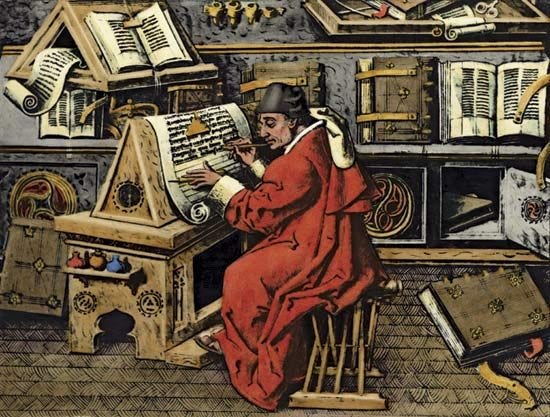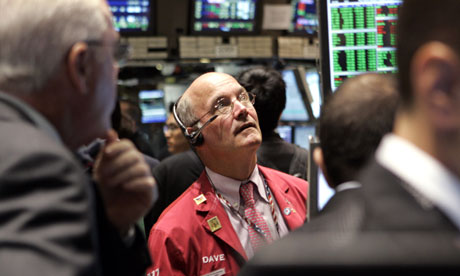Economist-mathematician Nassim Nicholas Taleb contends that there is a global riot against pseudo-experts
After predicting the 2008 economic crisis, the Brexit vote, the U.S. presidential election and other events correctly, Nassim Nicholas Taleb, author of the Incerto series on global uncertainties, which includes The Black Swan: The Impact of the Highly Improbable, is seen as something of a maverick and an oracle. Equally, the economist-mathematician has been criticised for advocating a “dumbing down” of the economic system, and his reasoning for U.S. President Donald Trump and global populist movements. In an interview in Jaipur, Taleb explains why he thinks the world is seeing a “global riot against pseudo-experts”.
I’d like to start by asking about your next book, Skin in the Game, the fifth of the Incerto series. You do something unusual with your books: before you launch, you put chapters out on your website. Why is that?
Putting my work online motivates me to go deeper into a subject. I put it online and it gives some structure to my thought. The only way to judge a book is by something called the Lindy effect, and that is its survival. My books have survived. I noticed that The Black Swan did well because it was picked up early online, long before the launch. I also prefer social media to interviews in the mainstream media as many journalists don’t do their research, and ‘zeitgeist’ updates [Top Ten lists] pass for journalism.
The media is not one organisation or a monolithic entity.
Well, I’m talking about the United States where I get more credible news from the social media than the mainstream media. But I am very impressed with the Indian media that seems to present both sides of the story. In the U.S., you only get either the official, bureaucratic or the academic side of the story.
In Skin in the Game, you seem to build on theories from The Black Swan that give a sense of foreboding about the world economy. Do you see another crisis coming?
Oh, absolutely! The last crisis [2008] hasn’t ended yet because they just delayed it. [Barack] Obama is an actor. He looks good, he raises good children, he is respectable. But he didn’t fix the economic system, he put novocaine [local anaesthetic] in the system. He delayed the problem by working with the bankers whom he should have prosecuted. And now we have double the deficit, adjusted for GDP, to create six million jobs, with a massive debt and the system isn’t cured. We retained zero interest rates, and that hasn’t helped. Basically we shifted the problem from the private corporates to the government in the U.S. So, the system remains very fragile.
You say Obama put novocaine in the system. How will the Trump administration be able to address this?
Of course. The whole mandate he got was because he understood the economic problems. People don’t realise that Obama created inequalities when he distorted the system. You can only get rich if you have assets. What Trump is doing is put some kind of business sense in the system. You don’t have to be a genius to see what’s wrong. Instead of Trump being elected, if you went to the local souk [bazaar] in Aleppo and brought one of the retail shop owners, he would do the same thing Trump is doing. Like making a call to Boeing and asking why are we paying so much.
You’re seen as something of an oracle, given that you saw the 2008 economic crash coming, you predicted the Brexit vote, the outcome of the Syrian crisis. You said the Islamic State would benefit if Bashar al-Assad was pushed out and you predicted Trump’s win. How do you explain it?
Not the Islamic State, but al-Qaeda at the time, and I said the U.S. administration was helping fund them. See, you have to have courage to say things others don’t. I was lucky financially in life, that I didn’t need to work for a living and can spend all my time thinking. When Trump was running for election, I said what he says makes sense to a grocery store owner. Because the grocery guy can say Trump is wrong because he can see where he is wrong. But with Obama, he can’t understand what he’s saying, so the grocery man doesn’t know where he is wrong.
Is it a choice between dumbing down versus over-intellectualisation, then?
Exactly. Trump never ran for archbishop, so you never saw anything in his behaviour that was saintly, and that was fine. Whereas Obama behaved like the Archbishop of Canterbury, and was going to do good but people didn’t feel their lives were better. As I said, if it was a shopkeeper from Aleppo, or a grocery store owner in Mumbai, people would have liked them as much as Trump. What he says makes common sense, asking why are we paying so much for this rubbish or why do we need these complex taxes, or why do we want lobbyists. You can call Trump’s plain-speaking what you like. But the way intellectuals treat people who don’t agree with them isn’t good either. I remember I had an academic friend who supported Brexit, and he said he knew what it meant to be a leper in the U.K. It was the same with supporting Trump in the U.S.
But there were valid reasons for people to be worried about Trump too.
Well, if you’re a businessman, for example, what Trump said didn’t bother you. The intellectual class of no more than 2,00,000 people in the U.S. don’t represent everyone upset with Trump. The real problem is the ‘faux-expert problem’, one who doesn’t know what he doesn’t know, and assumes he knows what people think. An electrician doesn’t have that problem.
Is the election of Trump part of a global phenomena? You have commented on the similarity to the election of Narendra Modi in India.
Well, with Trump, Modi, Brexit, and now France, there are some similar problems in those countries. What you are hearing is people getting fed up with the ruling class. This is not fascism. It has nothing to do with fascism. It has to do with the faux-experts problem and a world with too many experts. If we had a different elite, we may not see the same problem.
There are other similarities, to quote from studies of populist movements worldwide: these leaders are majoritarian, they build on resentment, they use social media for direct access to their voters, and they can take radical decisions.
I often say that a mathematician thinks in numbers, a lawyer in laws, and an idiot thinks in words. These words don’t amount to anything. I think you have to draw the conclusion that there is a global riot against pseudo-experts. I saw it with Brexit, and Nigel Farage [leader of the U.K. Independence Party], who was a trader for 15 years, said the problem with the government was that none of them had ever had a proper job. Being a bureaucrat is not a proper job.
As a businessperson, you have a point about experts and pseudo-experts who you say are ‘left-wing’. How do you explain the other parts to the phenomenon that aren’t economic: the xenophobia, Islamophobia, misogyny, etc.?
I don’t understand how a left-wing person can defend Salafism, or religious extremism. In a democracy, you can allow people to have any view, but they can’t come with a message to destroy democracy. Why should people who come to the West come with a message to finish the West? This is where the discourse goes haywire. So in Yemen, the [Saudi] intervention is good, but the intervention [by Russia] in Aleppo shouldn’t be allowed. I don’t think Trump was racist when he said Mexican criminals shouldn’t be allowed into the U.S.; he was targeting criminals. If you are Naziphobic, you are not against Germans. If I oppose Salafism, I am not an Islamophobe. Obama also deported Mexicans and refused to accept immigrants.
Is anti-globalisation a part of this sentiment?
I am not anti-globalisation, but I am against big global corporations. One of the reasons is what they cost. Today, every project sees cost overruns because these projects have to factor in global risks as well. In nature there is an ‘island effect’. The number of species on an island drops significantly when you go to the mainland. Similarly, when you open up your small economies, you lose some of your ethnicity or diversity. Artisans are being killed by globalisation. Think of the effect on so many artists who have been put out of work while people are buying wrinkle-free shirts and cheap mobile phones. I’m a localist. The problem is globalisation comes through large global corporates that are predatory, and so we want to counter its ill-effects.
Where do you see the world moving now? Further right, or will it revert to the centre?
I don’t think it will go left or right, and I don’t know about the short term. But I think in the long term, the world can only survive if it lives like nature does. Many smaller units of governance, and a collection of super islands with some separation, quick decision-making, and visible implementation. Lots of Switzerlands, that’s what we need. What we need is not leaders, we don’t need them. We just need someone at the top who doesn’t mess the system up.


